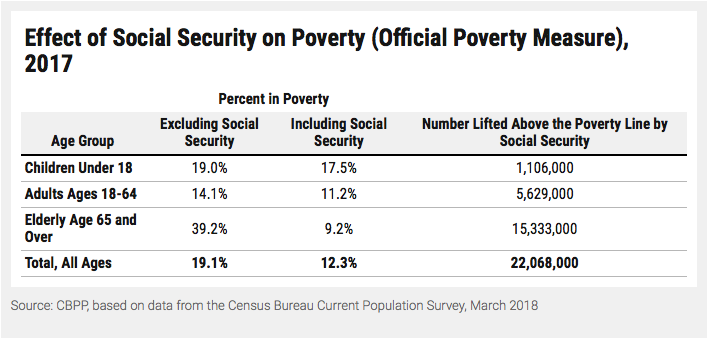Seventy-nine years ago, Franklin D. Roosevelt signed the Social Security Act into law, saying,
“Today, a hope of many years’ standing is in large part fulfilled… We have tried to frame a law which will give some measure of protection to the average citizen and to his family against the loss of a job and against poverty-ridden old age.”
While it’s arguable today whether Social Security benefits adequately provide for seniors modern needs, in 2019, we can safely say Roosevelt’s landmark program does what it set out to do: protect the average citizen and his family against senior poverty.
In fact, there is no federal program that can touch the impact Social Security has had on poverty. Social Security is the greatest antipoverty measure in our history.
Without Social Security, over 22 million Americans would fall below the poverty line. And though a majority of those are seniors, it also includes children and adults of all ages.
It’s especially effective at lifting historically vulnerable groups, like women and people of color, out of poverty.
But when it comes to retirees and the elderly, Social Security prevents 39.2% of them from falling below the poverty line.
So as we celebrate the 79th year of what may be America’s most important federal program—and as we look toward its still uncertain future—we need to continue to reflect on what Social Security has done for our country. Without it, many lives might be dramatically different.
Knowing this, we need to continue to fight to protect Social Security and the benefits so many depend on—the benefits that every hard-working American has earned.




